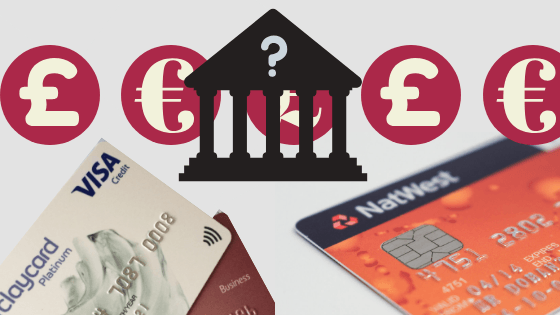Every business needs a business bank account to operate and trade on a day to day basis. Money is being paid to suppliers, customers are paying for services, business employees receive their wages and tax and VAT is being paid to revenue collection agencies. However, many businesses don’t realise how much they are paying for these services, and some don’t even realise the extra charges that may be applied if they don’t operate the account according to conditions they agreed when the account was originally setup.
Save money by researching bank account offerings
Firstly, when researching business bank accounts it is important to compare several companies, not just the popular high street names. Each bank has different advantages and disadvantages and it is crucial to focus on the key aspects your business wants to benefit from. Business bank accounts can be charged monthly or annually, so it would be worth considering what account offers the smallest charge overall. The difference of a couple of months not being charged for a bank account would save a considerable amount of money in the long term.
Borrowing money
Another way to save money is to consider the principle of having an overdraft. Whilst an overdraft is reassuring to have as a fallback option, it can also lead to spending more money than you actually have. An overdraft is technically borrowing money that is not yours and you will incur monthly overdraft interest charges. If an overdraft is something you want to consider for your business, keep a close eye on how much it is costing per month, and whether it is needed at all or consider if a longer term loan would be more cost effective.
A business credit card can often be a good choice for organisations wishing to build up a good credit score, providing the balance is paid in full each month. As with an overdraft, caution is advised to ensure you don’t spend beyond your means, but a credit card could be a better choice for your business than a loan or overdraft.
Free business banking and perks
Furthermore, in order to save money, it would be worth going for a bank account which offers a longer duration of ‘free business banking’. For example, NatWest offers 18 months free, Santander is 12-18 months free, Barclays is 12 months and HSBC can be up to 18 months. Whilst all these bank accounts have similar free business banking durations the difference of a few months can save your business money in the long term.
In addition, some bank accounts can offer loyalty rewards, for instance Barclays has a monthly loyalty reward. This means that if you stay with Barclays for a longer period of time the more of their bank charges they’ll give back to you each month. Moreover, Barclays offers ‘Simple price plans’ which is where they will keep bank account on the best deal in terms of how you make and receive payments.
In conclusion, there are many ways to save money for your business bank account. The important lesson is to research into what characteristics you want your bank account to have whilst focusing on adding value and to be profitable rather than losing money just by the concept of storing it in an account. Grow your business to its maximum potential by following these money saving tips and your business will diversify rapidly.
If your small business has not yet started offering contactless or smartphone payments, check out our posts on the benefits these payment technologies can bring, and how to start taking advantage of them.
Keeping running costs for your business to a minimum is made much easier when you have a balanced budget; here at Neil Smith Accountancy we offer expert business advice and accounting services, get in touch with us today!


